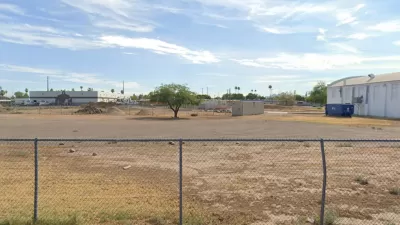A common refrain heard by locals opposed to new housing developments is that area schools can’t absorb the increase in students they’ll bring. As the nation approaches an “enrollment cliff,” the data tells a different story.

A new Shelterforce article reveals that concerns about school overcrowding - a common argument against affordable housing development - contradict actual enrollment data showing widespread declines across U.S. school districts.
In many cases, proposed affordable housing projects faced opposition due to school capacity concerns, including Steamboat Springs, Colorado, where voters rejected a major affordable housing development partially due to school overcrowding fears. However, nationwide data shows K-12 enrollment is projected to drop by 8% between 2019 and 2030, with many districts already experiencing significant declines.
In California's Coachella Valley, where an ambitious 10,000-unit affordable housing initiative is underway, local school districts report continued enrollment decreases rather than overcrowding. One district has lost over 2,000 students since 2018, while another operates at just 75% capacity.
- The enrollment decline stems from multiple factors, including:
- Falling birth rates since the 2008 recession
- Broad demographic shifts
- COVID-19 impacts on public school enrollment
School administrators note that declining enrollment threatens school funding and stability, with many districts actively seeking more students. As Adam Bosch of Hudson Valley Pattern for Progress states in the article, "We should be on our knees praying for a hailstorm of children to fall from the sky."
FULL STORY: Fact Check: New Housing Doesn’t Lead to Overcrowded Schools

Planetizen Federal Action Tracker
A weekly monitor of how Trump’s orders and actions are impacting planners and planning in America.

Congressman Proposes Bill to Rename DC Metro “Trump Train”
The Make Autorail Great Again Act would withhold federal funding to the system until the Washington Metropolitan Area Transit Authority (WMATA), rebrands as the Washington Metropolitan Authority for Greater Access (WMAGA).

DARTSpace Platform Streamlines Dallas TOD Application Process
The Dallas transit agency hopes a shorter permitting timeline will boost transit-oriented development around rail stations.

Renters Now Outnumber Homeowners in Over 200 US Suburbs
High housing costs in city centers and the new-found flexibility offered by remote work are pushing more renters to suburban areas.

The Tiny, Adorable $7,000 Car Turning Japan Onto EVs
The single seat Mibot charges from a regular plug as quickly as an iPad, and is about half the price of an average EV.

Supreme Court Ruling in Pipeline Case Guts Federal Environmental Law
The decision limits the scope of a federal law that mandates extensive environmental impact reviews of energy, infrastructure, and transportation projects.
Urban Design for Planners 1: Software Tools
This six-course series explores essential urban design concepts using open source software and equips planners with the tools they need to participate fully in the urban design process.
Planning for Universal Design
Learn the tools for implementing Universal Design in planning regulations.
Municipality of Princeton
Roanoke Valley-Alleghany Regional Commission
City of Mt Shasta
City of Camden Redevelopment Agency
City of Astoria
Transportation Research & Education Center (TREC) at Portland State University
US High Speed Rail Association
City of Camden Redevelopment Agency
Municipality of Princeton (NJ)





























